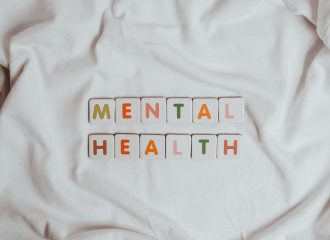by Duncan Wood
About three years ago, during the summer before I moved to Florida, I met a friend of my sister’s in his home off the highway in a low-income neighborhood. We walked past the kitchen, avoiding laundry on the floor, and entered his smoke-stained room. My eyes burned from cigarette smoke as I sank down on his couch wondering why my sister would hang around someone like him. In front of me, the phosphorescent glow of his TV with the video game Super Smash Bros. Melee caught my eye, and I itched to play. Charlie smoked half a pack of cigarettes, a couple of blunts, and downed two or three 16-ounce beers while we played. This was his daily routine. We competed for five hours, incubating a friendship that has lasted to this day. As the trust we placed in each other grew, my initial reaction to him changed.
We talked about our experiences with mental illness and how life sucks. I was buried beneath an internal critic that made me believe I would never amount to anything and that I didn’t deserve to be here. Charlie was constantly engulfed with the financial burden of supporting himself and his mother. Since we met three years ago, we’ve both changed a lot. I’ve decided to treat myself better by believing I could start thriving instead of only surviving. Charlie quit the cancer sticks and has been losing weight, and when life is hard, it isn’t always the liquor he turns to.
Instead he’s working on other ways to cope. I struggle to cope the same way he does, but I’m determined to become the best version of myself that I can be. A constant effort involving the love and support of my friends and family, as well as finding respect and love for myself has propelled me to thrive. I work two jobs, maintain a great GPA, and am in a healthy two and a half year relationship. I can’t say where Charlie would be now if I had never met him, but I’d like to believe that our friendship has affected his choices to live a better life. As I approach graduation, I’ve learned some healthier strategies for feeling more fulfilled—I’ve found that balance is a key factor for success.
It’s the summer of 2019 and college students are pushing themselves still. We adjust into new routines, healthily or not. As traditional first-time students living on our own with unabated freedom, our hobbies can sometimes get out of hand. Social drinking becomes solo binging, we spend 12 hours a day on the computer or work 80 hours a week and become too tired for anything else. If our internal scales are all weighted on one side, our social and mental well-being suffers. For us to lead a more balanced life we need to get out of our heads, build healthy relationships, and establish excellent routines. The first step can often be the hardest, but it’s also vital to create change in your life.
Step 1: Get Out of Your Head
I was stuck in an unhealthy spiral during my freshman year. I moved into Neptune on campus after living in Illinois my entire life. I didn’t know anyone, I didn’t know who I wanted to be, and I didn’t know how I’d get through a single semester without giving up. The only time I left my dorm was when I walked across campus to get to class. During these 20-minute hikes, I’d see flyers for various events and interact with student organizations tabling outside the Union on Market Wednesdays. I forced myself to check a couple of clubs, because I knew I wouldn’t be able to get better on my own.
I’d been my own worst critic for so long, believing no one would want to get to know me through unhealthy comparisons. It took a while but I found a couple of clubs that stuck: Nerdknighteria, Active Minds, and NORML@UCF. Opening myself up to members of these groups was hard at first, so I was surprised to find myself accepted rather quickly. The voice of the critic in my head became quieter as I surrounded myself with people who wanted to listen to me. I became an advocate for NORML, tabling for them and becoming invested in their agenda. Being a part of something bigger drove me to making NORML better too, which I did. I became an officer and spoke to new members of the group who were quiet in the beginning like me. The voice who told me leaving my room wasn’t worth the effort was muffled because the friends I made in NORML saw more in me than I saw in myself at the time. Eventually, I was able to tell that harmful voice to shut up and grew the confidence to get involved more.
My advice? Find something that has an agenda you can get behind and steer the ship of your mental state towards a more productive horizon. There are over 700 clubs you can find on KnightConnect. CAPS is located near the Student Health Center and free for students. If you’ve got a great idea of your own that hasn’t been done yet, the process of starting an organization at UCF is easier than you might expect.
Step 2: Building Healthy Relationships
We often compare ourselves to others and, according to thousands of sources such as Psychology Today, Forbes, and Vice, comparing yourself to others is normally recognized as an unhealthy habit. Since coming to UCF, I’ve found myself surrounded by those who seem to have their life together more than I do. For example, a co-worker of mine planned out their weekly budget two years in advance, which left me with a sense of inadequacy. Upon reflection, I realized comparing oneself to another person is not inherently a bad habit. We all do it; however, social comparison becomes unhealthy when it involves the sense that one could never be as good as another. Instead of letting the inadequacy linger, I decided to spend more time with this person. I told her how I felt, and she said that her togetherness was only existent on the surface, a sentiment we bonded over. Her planning was an effort to become better, a process that requires daily effort. I then decided to spend more time with this person.
To determine if a friendship could be healthy or not, notice how people react to your trust. Do they listen to your opinions and reflect, or ³disregard your position and only focus on themselves? Trust should take a long time to build, but if you hear each other out and are trying to become better, the relationship should push both of you to make healthier choices. A tip for finding these relationships is to involve yourself with people doing what you would one day like to do. For me, getting a job at the writing center has made a tremendous difference transitioning into my identity as a writer. My co-workers have always pushed me to take my writing to the next level. You may feel awkward at first, but most people enjoy talking about what led them to success. Take the initiative and start a conversation.
Some healthy relationships come from places we would never expect, like the one I have with Charlie. If for nothing else, I want to become better because I know he believes I can be. We make sense of who we are by comparing ourselves to other people. It’s true this can initially be self-depreciating, but take social comparison a step further and you and your friends will both benefit from it.
Step 3: Create Balanced Routines
American Philosopher Will Durant read between the lines of Aristotle when he said, “We are what we repeatedly do. Excellence, then, is not an act, but a habit.” Although we normally don’t think of them, routines are there, hidden between the lines of larger events. For some, routines feel like the only consistent thing in a person’s chaotic life. After about a month of doing a particular activity it becomes a habit; eventually we engage in them without thinking. If you’ve decided to live a more balanced life, reflecting on ways to improve routines is a must.
Once a week, I use the dry-erase board that hangs on my bedroom wall to create a list of doable tasks for the following week. In this ten minute meditation, I include activities that fulfill my social, academic, and work needs and that lay the groundwork for the pursuit of larger goals. The research from Scientific American acknowledges the importance of routines as well, saying that “regularity helps life make sense, a crucial component in finding meaning.” My task-planning routine helps my forgetful mind take on more responsibility and manage my time smarter, without necessarily working harder. Wanting to live a more excellent life has become possible for me because I’ve consistently worked towards my goals through planning and following through.
College is what you make of it. No one will make your life better for you. It requires hard work and goal setting. Believe you can be better and get out of your head, lift yourself up you by building healthy relationships, and commit to being a better person every day by establishing excellent routines.




